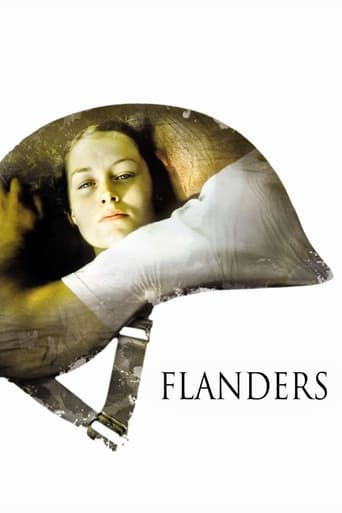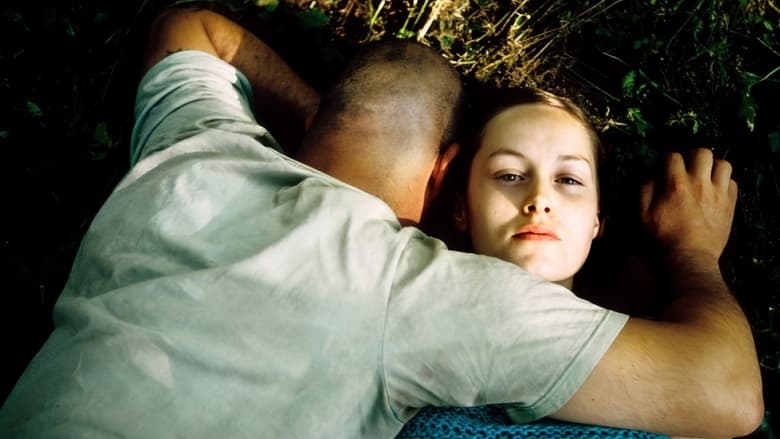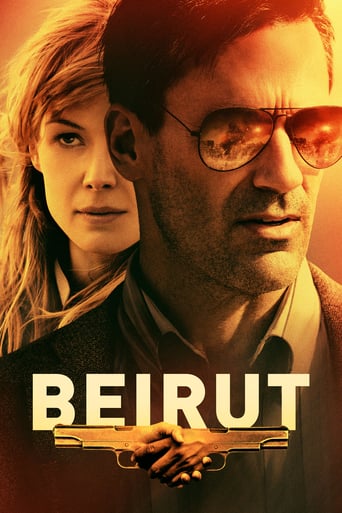

Flanders (2006)
André Demester secretly and painfully loves Barbe, his childhood friend, accepting from her the little that she gives him. He leaves home to be a soldier in a war in a far off land. Barbarity, camaraderie and fear turn him into a warrior. As the seasons go by, Barbe, alone and wasting away, waits for the soldiers to return. Will Demester’s boundless love for Barbe save him?
Watch Trailer
Cast
Similar titles


Reviews
It is both painfully honest and laugh-out-loud funny at the same time.
This movie feels like it was made purely to piss off people who want good shows
One of the best movies of the year! Incredible from the beginning to the end.
Great example of an old-fashioned, pure-at-heart escapist event movie that doesn't pretend to be anything that it's not and has boat loads of fun being its own ludicrous self.
"Perhaps when we were raping her we looked at her as a woman. But when we killed her, we just thought of her as a pig." - Unknown SoldierBruno Dumont preaches to the converted with "Flanders", a film which merges Brian De Palma's "Casualties of War" with Stanley Kubrick's "Full Metal Jacket".The film's first act takes place in a monotonous world of rural villages and lifeless arable land. Using static shots, Dumont spotlights various listless, expressionless characters. Significantly, when energy is expended, it is only to have sex. Dumont's cast resemble livestock as they copulate in the mud.Like Kubrick and De Palma, conflict stems first from the phallus. Here, a Belgian farmhand called Andre has sex with a local girl called Barbe. It's a pathetic act, a moment where animal drives and emotions confusingly conflate. Afterwards, they're left unfulfilled, the social and biochemical allure of sex giving way to something more banal. It is only when Barbe sleeps with another man in her village that Andre reassess his relationship with her. We don't yet realise it, but revenge fantasies and feelings of psycho-sexual humiliation are bubbling in Andre's head. Now aware that Barbe is desired by others, and that he has no claim over her, Andre acquires a newfound desire to conquer, dominate and spread his seed. The film cuts to an unnamed Middle Eastern country, the playground of Andre's psyche. Here he witnesses men killing children and soldier's forcing themselves upon a young woman, a scene which echoes not only De Palma's "war as rape" narratives, but Kubrick's symbolic snipers and hookers. Andre then witnesses the raped woman's vengeful response. Back home, Barbe is aborting a baby.The film's final act is where it breaks free of most war movie conventions. Andre returns from war not traumatised, but with a newfound sense of "humanity". Realizing the dark contours of his desires, his own libidinal drives, Andre sees Barbe for the first time in a new light. Whilst throughout the film everyone views Barbe as a whore, he sees her now as something else. Film's first words: "s**t" and "f**k". Film's last words: "I love you." Like Dumont's "Humanity", "Flanders" paints an exodus away from the corporeal, the bestial, the crude wants of the flesh, and toward what at first seemed like a spiritual impossibility. The film's title alludes to the killing fields of World War 1, but its imagery conjures up modern images of Iraq, Afghanistan and various American Crusades across Latin America and the Middle East. Scenes in which soldiers travel on horseback evoke the legacies of Western expansion.Typical of Dumont, the film is a work of extreme minimalism. Every action, gesture, shot, movement and line of dialogue is stripped down to an almost Bressonian essence. Only the "essential" remains. Viewers unwilling to read the film's whispers will find nothing to hold their interest. Some have said that the film is contemptuous and disgusted by humanity. This is not true. One can argue, however, that Dumont, like most New French Extremists, hates his medium. That he holds the belief that cinema can convey truths only by first rejecting the medium's aesthetic possibilities and gifts for enchantment. The film's distancing effects thus feel smug and self-congratulatory.Sexual drives and issues of war-rape tend to be left out of most war films, despite sex being at the core of most violence (as I write this, it has been learnt that hundreds of Sri Lankan women were raped by soldiers during the 2009 Civil War, a fact which the local government subsequently covered up- similar things continue in Iraq). Rape is a form of trans-generational revenge and punishment. It is an extension of misogyny, the genocide mentality, the wish to extinguish the enemy and feelings of nationalistic superiority. The undermining of the enemy's familial, social and national bonds by humiliating females, by creating life-time scars in women's bodies and minds and by socially stigmatising the enemy, does not only comprise psychological warfare, but is a direct extension of the gun and the phallus. In a patriarchal society each rape symbolises, not only abject defeat, but the impotence of the Other (male or female), now rendered submissive. The term rape is also used to denote the occupation of a territory or a town (e.g. the rape of Nanjing) and has even leaked into the computer gaming vocabulary of children ("raping" opponents). Feminist explanations of sexual torture stress that men abuse power and engage in games of sexual dominance (humiliating and subjugating women etc) as a means of reinforcing their masculine identities. Under such assumptions, men stripped of civilisational inhibitions reveal their "inner desires" with and during war-raping. This view is supported by the fact that the vast majority of rapists in war are not mentally disturbed. They are 'normal' men, drafted or volunteers. But while it is true that male sexuality is potentially more aggressive than female sexuality, also in times of peace, one must realise that this aggressiveness is cultivated and intensified through the institutional misogyny of the military establishment (and exploited during racist wars). Under such circumstances, many more men rape, even those who would never consider raping a woman during "normal" times. Here, the responsibility for atrocities lies with leaders, who engender or outright sanction such acts. "Flanders" is far too esoteric and will alienate those most requiring its message. Dumont fails to capture the sparse spirituality of a Tarkovsky, Bresson or Antonioni, despite channelling such a tone well with "L' Humanité". The film is somewhat derivative of "Full Metal Jacket", a film which better conveys the sheer misogyny of bootcamp (and after), and which better points to the future landscape of wars: a world of humane, clean kills, sexism, murder and racism rationalised away by brainwashed men and women as ethics administered via trigger.7.9/10 - Worth two viewings.
Bruno Dumont seems to create controversy in every one of his films, but I've only seen "Flandres" and "L'Humanite. " Dumont's film language is very bleak and very stark. He uses little to no soundtrack music, letting ambient sound to substitute. His characters seem to writhe in a painfully prosaic film world, their experiences and torments more vivid for the lack of melodrama.Demeste (Samuel Boidin) and Barbe (Adélaïde Leroux) have a complicated romantic relationship in a rural farming village somewhere in Francophone Europe. Barbe is promiscuous with other men, yet Demeste seems to permit the trysts without comment. You only see his brooding glares. All the young men in the area enlist to go off for war somewhere in an Arab desert. They young soldiers take their emotional baggage with them into this hostile environment. There are fistfights in the camp, firefights in the field, and no one understands the language or mannerisms of the locals. Inevitably, acts of war become acts of war crimes. Seemly normal guys go off to war and become brutal Neanderthals murdering, molesting and bailing. The survivors, like all survivors, are left to try and understand what happened and what they've become.
The story of a nymphomaniac and three of her friends who go to war. They live in a rural area and the young men are farmhands.Weak dramatic construction and execution makes this an unsatisfactory narrative. One could put a positive spin by stressing the contrast made between the muddy, limited and mundane life of the farm with the dirty and savage moments of war zones. One could also call attention to the parallels between the minor moral transgressions of civilian life and the moral outrages perpetrated by combatants during an armed conflict. But even this alternative viewing superimposes itself poorly on the narrative structure.
It's remarkable that this film is not more popular. It successfully strips away the veneer of "civilisation" (false morality, good manners etc) and shows people as selfish, brutal animals, and depicts modern, asymmetrical warfare as a terrible nightmare where a group of brutish white thugs rape and murder a terrified, technologically backward society (nearly all of whom are defenceless/ poorly armed women and children) before finally being made to suffer a grim but deserved humiliation for their actions. Oh, actually, what am I saying? It'll be a bloody surprise if it ever comes out in North America properly, given the hypocritical, righteous atmosphere of self-delusion that currently permeates this society, a society underpinned by exactly the kind of abuse and violence that this film describes.







